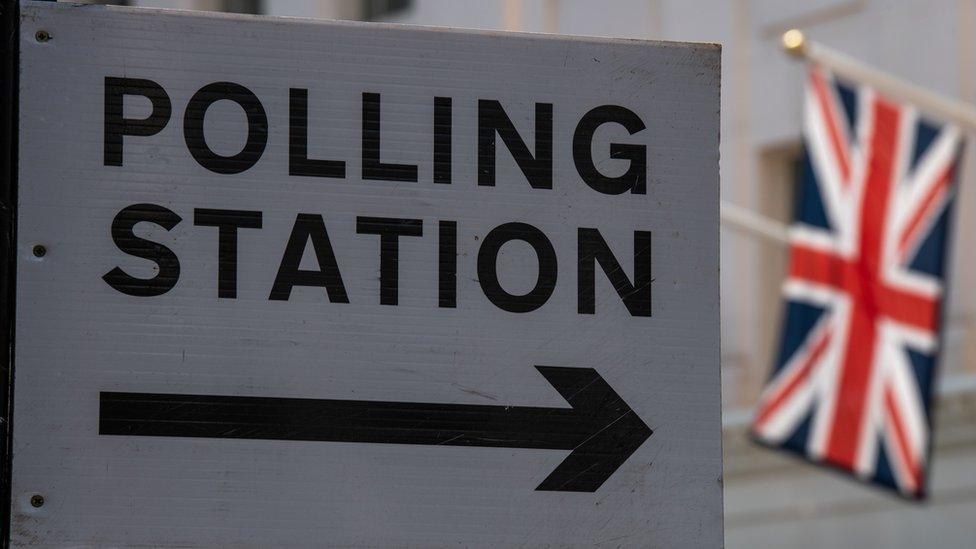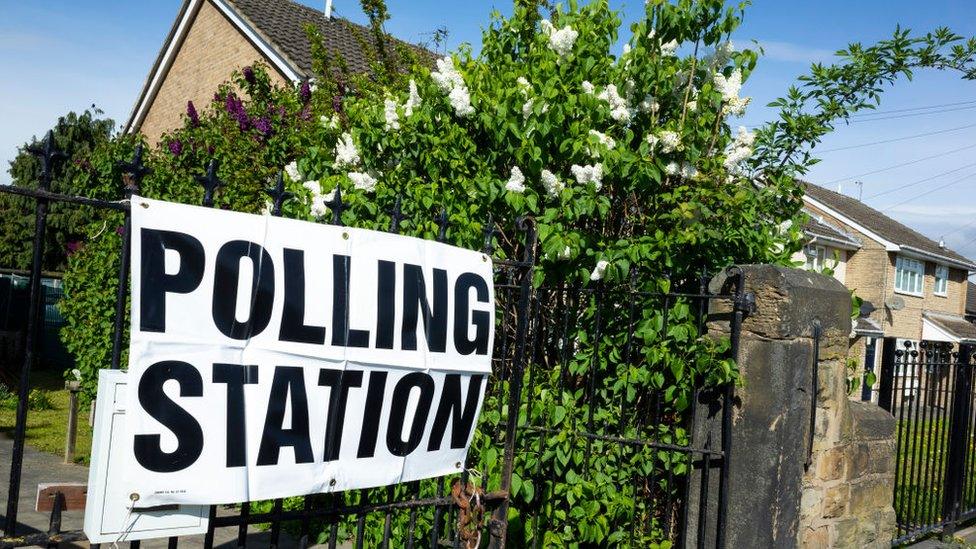Local elections 2023: Leaders to make final pitch to voters
- Published
- comments

Party leaders are making their final pitch to voters on the last day of campaigning for local elections across England.
They are set to visit battleground areas before polls open on Thursday to elect around 8,000 councillors and four local mayors.
The polls will decide who will run services in 230 local councils.
They are also being closely watched as a key test of public opinion before the general election expected next year.
Opposition parties have sought to attack the Conservatives' record on crime, as well as running key services such as the NHS.
Campaigning, taking place against a backdrop of stubbornly high inflation, has also been dominated by the cost of living.
Leaders from the main parties are all making campaign stops later, following the last session of Prime Minister's Questions before polls open.
On Wednesday evening, Rishi Sunak said "good councillors will lose tomorrow" because of the turbulence in the Conservative Party over the last year.
Earlier in the day during a visit to Buckinghamshire, the prime minister said: "We are concentrating on delivering on people's priorities.
"Nationally, I'm focused on my five priorities - that's halving inflation, growing the economy, reducing debt, cutting waiting lists and stopping the boats.
"We're going to keep delivering for people. My priorities are the people's priorities."
Target seats
Labour leader Sir Keir Starmer said the country "desperately needs change, I think you can sense that in the air".
Speaking to supporters in the Labour target of Medway, Kent, Sir Keir said: "There's one question that really stands out and that is people asking themselves after 13 years 'am I any better off since this mob started?"'
Liberal Democrat leader Sir Ed Davey, who is targeting rural and suburban seats held by the Tories, visited a string of target seats in southern England.
Voters were getting "increasingly fed up with the Conservatives, we're getting lifelong Conservatives telling us they will never vote Conservative again," Sir Ed said.
The Liberal Democrats were "getting a great response", he added.
The campaign has been dominated by exchanges on the issue of crime, with the parties trading statistics on the record of the Conservatives in tackling the issue in government since 2010.
Environmental issues including sewage dumps in England's waterways, has also been pushed by opposition parties and has emerged as a key election battleground.


The elections, mostly taking place in rural areas where the Conservatives still hold many councils, will decide council seats that were mostly last contested in May 2019.
For Labour, which has a healthy lead over the Tories in opinion polls, the elections present a chance to demonstrate momentum ahead of the general election widely expected to take place next year.
The Liberal Democrats will also be hoping to convert their success in a trio of by-elections last year into increased local representation, while the Greens are aiming to take outright control of an English council for the first time.
The Conservatives will be hoping to limit losses and demonstrate that a narrowing of its poll deficit since Rishi Sunak took over from Liz Truss shows a possible path to victory for the next general election.
Voter ID
The elections will also be the first polls to take place since a new requirement to show ID at voting stations in Great Britain came into force.
The government argues the rule is necessary to guard against voter fraud, but opposition parties say there is no evidence of this and accuse ministers of voter suppression.
People without the required ID were able to get a free certificate instead. Official figures show about 4% of those without ID signed up to receive one.
The figure does not include people who applied by post or in person. Others may have applied for a different form of valid ID.
Related topics
- Published29 April
